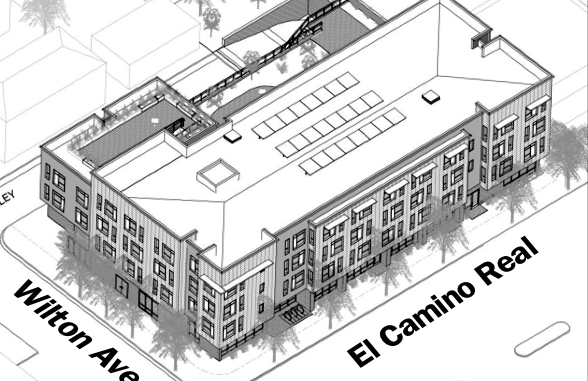
BY BRADEN CARTWRIGHT
Daily Post Staff Writer
Palo Alto is lagging behind Mountain View in creating affordable housing, and the city’s slow planning process,
poor communication and resistance to building offices are to blame, according to a report by the Santa Clara County Civil Grand Jury, a 19-person citizen watchdog group.
The report, called “Affordable Housing: A Tale of Two Cities” breaks down the number of units that are restricted for people with lower incomes and looks at policies that help Mountain View and hurt Palo Alto in generating affordable housing.
Mountain View has met 25% of its affordable housing goals, while Palo Alto met just 7%, the report says.
The jury says Mountain View has a political commitment to affordable housing and consistently makes it a priority. This leads to community support, as evidenced when Mountain View voters passed a rent control measure in 2016, the jury claimed.
In Palo Alto, residents are becoming more aware of housing issues, but they still have derailed several promising projects.
“Palo Alto City Council members do not play a strong enough leadership role in personally engaging in community education and discussion to aid in resident acceptance of affordable housing,” the report found.
Unlike a criminal grand jury, a civil grand jury writes non-binding reports that includes finding and recommendations for governments. Cities aren’t required to follow the recommendations, but they have to respond within 90 days. The jury operates under the Santa Clara County Superior Court’s jurisdiction.
Offices vs. housing
Palo Alto Mayor Tom DuBois said the grand jury’s report “appears designed to criticize Palo Alto while ignoring basic facts,” and he defended Palo Alto’s housing strategy in an interview yesterday. Palo Alto is trying a new tactic of constraining commercial growth while focusing on housing, he said.
Mountain View is worsening the imbalance between jobs and housing by building offices, and the city’s rents have increased dramatically as a result, DuBois said. A decade ago, rents in Mountain View were 20% less than Palo Alto, and now they are essentially the same, he said.
DuBois also said the grand jury failed to factor in the two cities’ existing affordable housing stock by instead focusing on housing creation. In Palo Alto, 9% of homes are affordable, compared to 3.9% in Mountain View.
People have an image of Palo Alto as being only single-family homes, but the city has more affordable housing and multi-family homes than many of its neighbors, DuBois said.
He pointed to three accomplishments by the current council that are in the works: 58 affordable apartments on Wilton Court, 50 units for the developmentally disabled at 525 E. Charleston Road, and a homeless shelter on the east side of Highway 101.
The Palo Alto process
DuBois did concede that the city’s lengthy process was accurately criticized. Mountain View has plans that describe how development can occur in certain neighborhoods, making it easier for developers, the jury wrote. On the other hand, Palo Alto “does not have a well-organized set of planning documents” related to affordable housing, the jury wrote.
Palo Alto could approve more neighborhood plans like Mountain View and eliminate a level of review, the jury found.
The jury recommends combining Palo Alto’s Architectural Review Board and the Planning and Transportation Commission to streamline the process. Mountain View has just one body that reviews projects before council, the Design Review Committee.
The jury also recommends that both cities hire am affordable housing manager and build their strategies for funding affordable housing by July 30.
